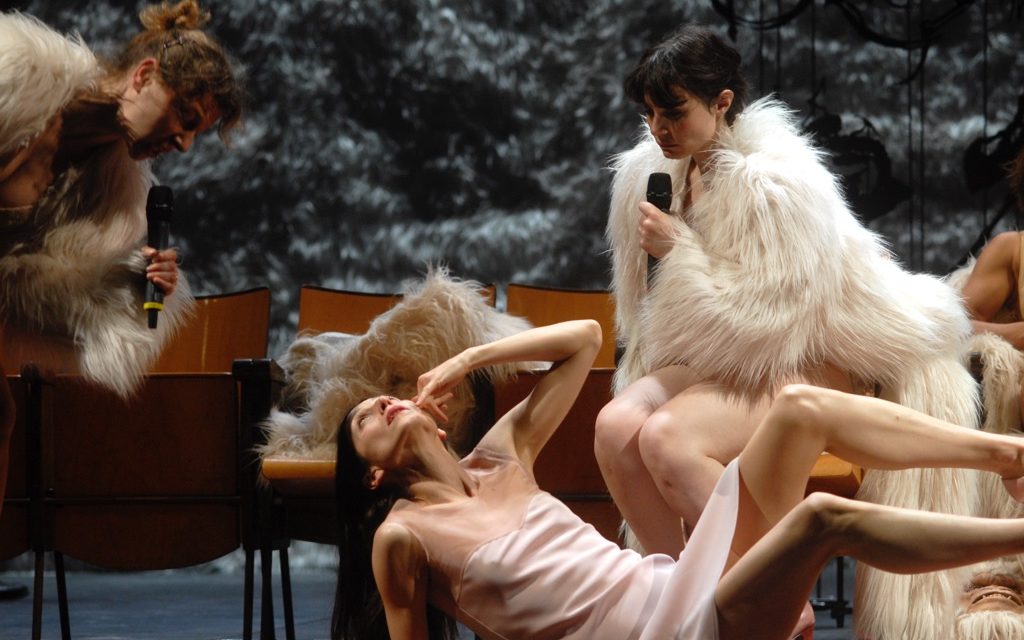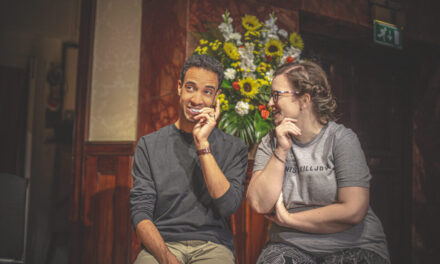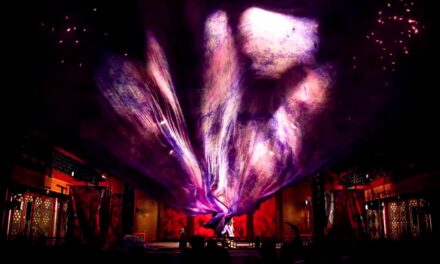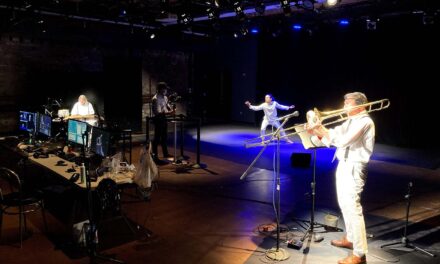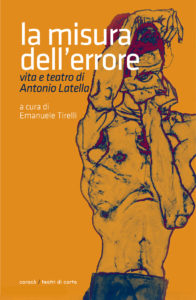 Antonio Latella is one of the leading figures of Italian theater, having worked, as an actor, with director such as Luca Ronconi, Giuseppe Patroni Griffi, Massimo Castri, and Vittorio Gassman, before becoming a prominent director himself of remarkable versions of William Shakespeare, Christopher Marlowe, Pier Paolo Pasolini, Jean Genet, Eduardo De Filippo, and Samuel Beckett, just to include few names.
Antonio Latella is one of the leading figures of Italian theater, having worked, as an actor, with director such as Luca Ronconi, Giuseppe Patroni Griffi, Massimo Castri, and Vittorio Gassman, before becoming a prominent director himself of remarkable versions of William Shakespeare, Christopher Marlowe, Pier Paolo Pasolini, Jean Genet, Eduardo De Filippo, and Samuel Beckett, just to include few names.
It seems weird that such a personality in Italian and European theatre context has been so little considered by scholar and, so far, there has been no books directly focused on him and his production. For this reason, La misura dell’errore. Vita e teatro di Antonio Latella, edited by Emanuele Tirelli and published by Caracò Edizioni in late 2016, has a double importance.
First of all, it covers a huge gap and gives historical dignity to a theater protagonist, through a book that is structured as a long and intense interview. Then, it is important because the editor Emanuele Tirelli, journalists and a playwright himself, has succeeded in breaching the reserved personality of Latella that, for the first real time, talks openly about himself and his career.
Tirelli focuses sensitively and accurately on the highlights of Latella’s artistic career, but also of the private life in relation to his theater, touching different interesting points and themes. Two of them have caught my attention: the first one is the relationship Latella has with Naples. Naples, in Italy, is many times a synonymous for theater. Naples has a huge, extreme, aggressive tradition that finds its roots in the popular performance and explodes totally in the 19th and 20th Centuries with various Di Giacomo, Scarpetta, Bracco, De Filippo, Viviani, Patroni Griffi, Ruccello, Moscato, Santanelli and others. Latella, born in Castellammare (nearby Naples) almost by accident and then moved to Turin, does not consider himself as a Neapolitan with a real relation with the city, but he continuously has to face this Neapolitan element as an uncomfortable legacy, that, in his opinion, does not really belong to him. Stronger is instead the contact with the Neapolitan language, the one spoken in the home he grew up, the language of the family. And, indeed, Latella – Tirelli focuses many times on this point – a pure international artist, with his life and career split in many main trajectories, like Italy and Germany.
The second theme of great interest is the culture and education of Latella, who is a cultivate theater practitioner, but with a culture that is not official or institutional. There is a sort of shyness in Latella when he thinks to the official culture, but, however, he trained and formed himself as an artist through experience with Vittorio Gassman – who was Latella’s mentor in Turin and in Florence – or the meeting with Luca Ronconi. Tirelli works on the “culture of Latella” with a lot of sensitivity, on his coming from a modest family where the books were not the priority, but, in any came, able to become a theater genius, absorbing the lessons from the maestri, till the international consecration with Porcile by Pier Paolo Pasolini in the Salzburg Festival in 2003.
In conclusion, La misura dell’errore is a remarkable and precious contribution, but it is essential to clarify that it is not, and it does not want to be, a scholarly or study book. The choice of Tirelli – and I personally agree – is to create a volume that could be at the same time achievable for a wider audience and a key starting point for any possible critical and academic discussion on Latella’s work in the future.
This post was written by the author in their personal capacity.The opinions expressed in this article are the author’s own and do not reflect the view of The Theatre Times, their staff or collaborators.
This post was written by Armando Rotondi.
The views expressed here belong to the author and do not necessarily reflect our views and opinions.

